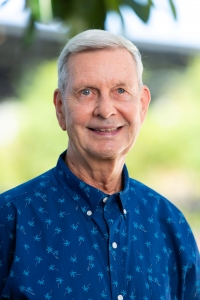The Pro Bono requirement includes an obligation that students and supervisors complete registration, time sheet, and evaluation forms which identify the nature of the supervising agency and scope of work, the number of hours of service performed, and other evaluation data.
Among non-profit legal services agencies served through the Pro Bono Program have been the Legal Aid Society, Volunteer Legal Services Hawaiʻi, Domestic Violence Clearinghouse and Legal Hotline, Native Hawaiian Legal Corporation, an Immigration Law Project, and the University of Hawaiʻi Elder Law Program as well as law-related organizations, such as American Civil Liberties Union and the Sierra Club. Law students have served in both Hawaiʻi and federal courts and have provided services under the supervision of attorneys in various county, state and federal departments and agencies including the City and County of Honolulu and other counties' Corporation Counsels, Office of Hawaiian Affairs, the Hawaiʻi Department of the Attorney General, the U.S. Attorney's Office, the Hawaiʻi Civil Rights Commission, and the Equal Employment Opportunities Commission. Students have also provided pro bono services in several continental U.S. states, U.S. Territories, and several foreign countries such as China, Thailand, Cambodia, Japan, and Scotland. Finally they have provided extensive services under the supervision of private practice attorneys and law school professors engaged in pro bono service projects.
Since the inception of the program, commencing with the Class of 1995, law students have provided an average of approximately 75 hours of service each. Some complete exactly 60 hours and many provide in excess of the minimum requirement, in service to various organizations and agencies. In recent years, with a graduating class increasing to approximately 100 students this equates to over 7,500 hours of pro bono legal services per year. Over the twenty-year life of the program, estimates are that nearly 100,000 hours of pro bono services have been provided by law students. The William S. Richardson School of Law has garnered substantial recognition, respect and appreciation from the community as a result of this innovative program. The faculty, in adopting a pro bono graduation requirement as well as enforcing its guidelines, has acknowledged a long-term commitment to the program as well as to the ideal.


